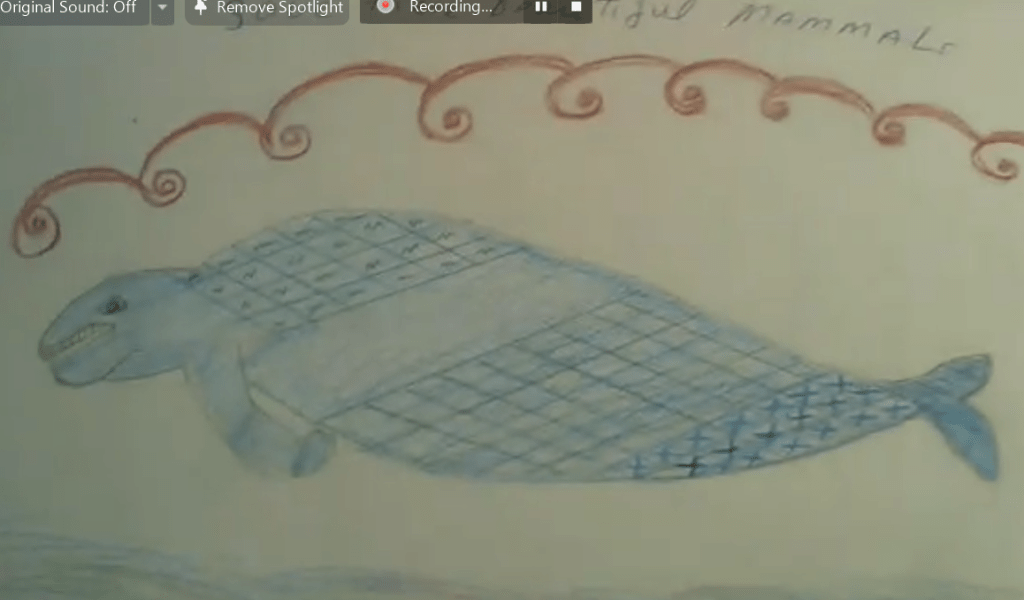To commemorate #WorldWhaleDay youthLeadArts hosted a drawing workshop for all ages hosted by Deirdre Potash and Roy Mulder conducted a short talk about whales in Canada and the threat they face in the ocean.
ABOUT WORLD WHALE DAY
World Whale Day is observed annually on the third Saturday in February. It is a wonderful opportunity to celebrate these magnificent aquatic mammals. Unfortunately, there are some threats to the well-being of whales. Ship collisions are one of the leading causes of serious injuries and non-natural death for these cetaceans. Commercial whaling, entanglement in fishing gear, pollution, climate change, global warming, oil and gas development, toxic contamination, and habitat degradation are the main threats faced by whales. World Whale Day provides an opportunity to voice concerns regarding the wellbeing of these marine mammals.
Roy talked about the Atlantic Right Whale population which only has 100 female whales left that can have young. Populations of the Critically Endangered North Atlantic right whale are estimated to have fallen by 30 individuals since 2019, leaving only around 336 of the animals left in the world.
Vessel strikes have been one of the leading causes of death for the endangered North Atlantic right whales in both Canadian and American waters. Blunt force trauma and propeller injuries are common signs of vessel strikes in cetaceans (whales and dolphins). We know that many of these whales might not be killed if the ships slow down a bit. The government has asked them to slow down, but the ships aren’t listening and we hope to remind them that we want the whales to live, and all they have to do is to slow down a bit.
Emerging research demonstrates that whales act as ecosystem engineers and provide the much needed nutrients to phytoplankton, tiny ocean plants that create at least 50% of our oxygen, annually sequester hundreds of thousands of tons of carbon, and provide a base for the marine food web leading to abundant fish stocks.
Whales provide important nutrient recycling services in ocean ecosystems. When they poop, they recycle nutrients-including iron-back into the sea. These nutrients are then consumed by smaller ocean creatures like phytoplankton, which helps to keep oceans healthy.
The other threat faced by North Atlantic right whales is a thing called ghost nets. The ghost nets are from fishing vessels that have lost them and they drift along in the ocean killing all sorts of fish and other sea life. Whales often get tangled in these loose nets and it causes them to drown, because whales, like us, have to breath. Scientists have discovered that 100% of all North Atlantic right whales have been tangled in fishing gear at least once in their life. We talked about net removal programs that clean up lost ghost nets and other ways of fishing that may not create this problem.
We will talk about these threats to whales and will also show you some photos of what we are talking about. We will be sharing and sending these photos to shipping and commercial fishing companies to show them our children care about the whales.
Here are a few of the images created by attendees of the workshop.











Drawings by Ava / Carolyn / Tina / Kelly / Kylee / Lucie / Patrick / Rosa Lise / Patrick

